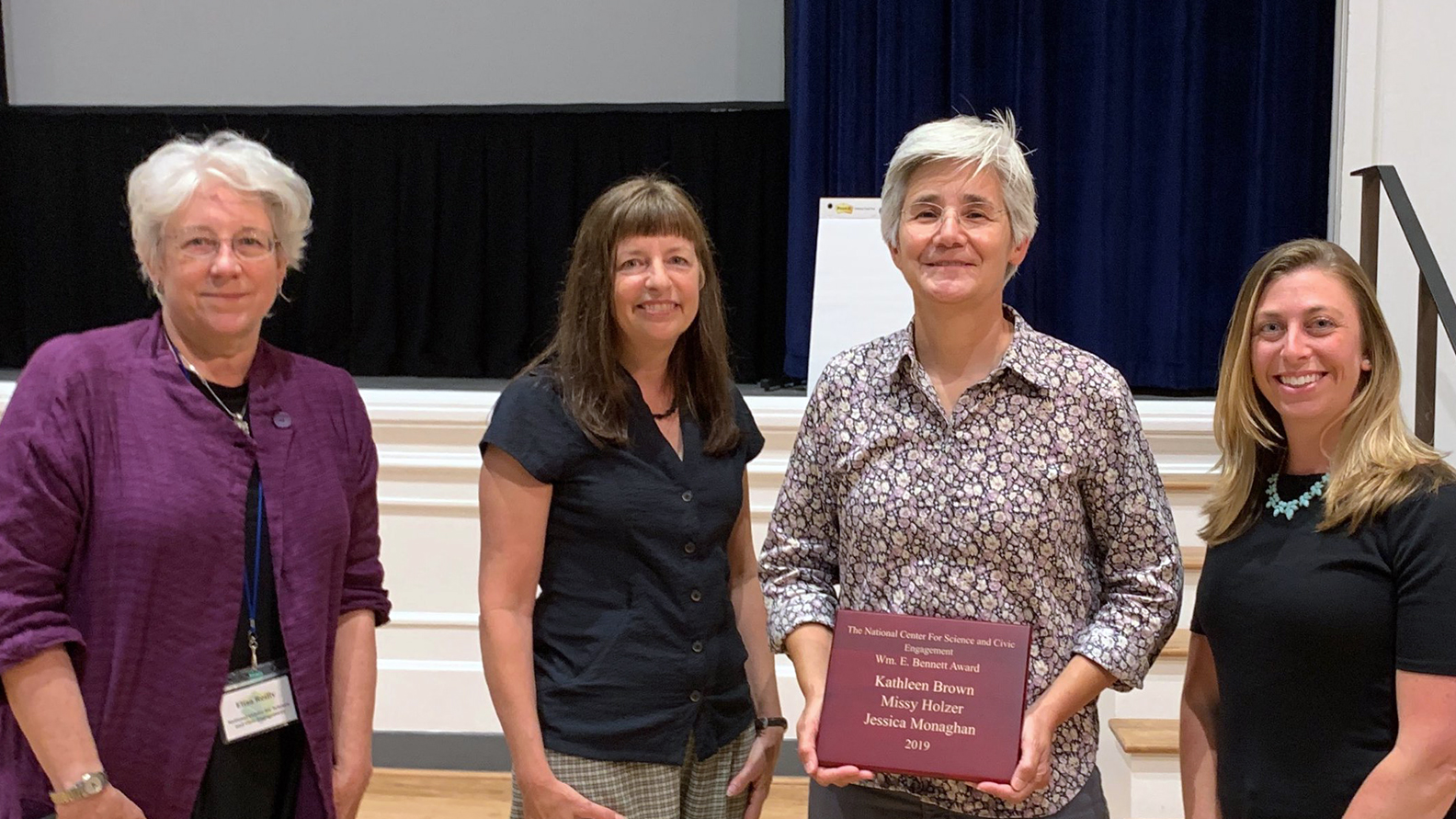Monday, Aug 12, 2019
Dr. Kathleen Browne is one of three educators who won the 2019 William E. Bennett team award
Dr. Kathleen Browne, an associate professor of geological and marine sciences, was one of three educators who won the 2019 William E. Bennett Award for Extraordinary Contributions to Citizen Science.
The Bennett Award is given annually to an individual and a team whose activities related to SENCER have made exemplary and extraordinary contributions to citizen science. SENCER is the signature program of the National Center for Science and Civic Engagement. It aims to improve science education by focusing on real-world problems and extend the impact of learning across the curriculum to the broader community and society.
Browne won the award alongside Dr. Jessica Monaghan of the New Brunswick Public Schools and Dr. Missy Holzer of Chatham High School (each in New Jersey) for their work providing professional development to pre- and in-service teachers and extending the SENCER approach to K-12 curricula. All are longstanding participants in SENCER.
"To me, SENCER is really about empowering learners to help address some of the world’s pressing issues regardless of their career choices," Browne says. "It makes all the sense in the world to extend such efforts into younger grades to inspire learners earlier. If it can be done in undergraduate education, it should be done in K-12 as well, regardless of the difficulty."
Browne has been chair of Rider's Department of Geological, Environmental, and Marine Sciences since 2017. Her early research interests have focused on the interaction of sedimentological, biological and chemical processes producing cyanobacterial mats in subtropical, carbonate environments in the Bahamas and Australia. More recently, she has focused her work on science education initiatives supported by numerous foundation grants.
The William E. Bennett Award for Extraordinary Contributions to Citizen Science was established by the National Center for Science and Civic Engagement and named in honor of its first recipient for his lifetime contributions to citizen science. The first award was presented to its namesake at a ceremony on Capitol Hill on March 31, 2009.

